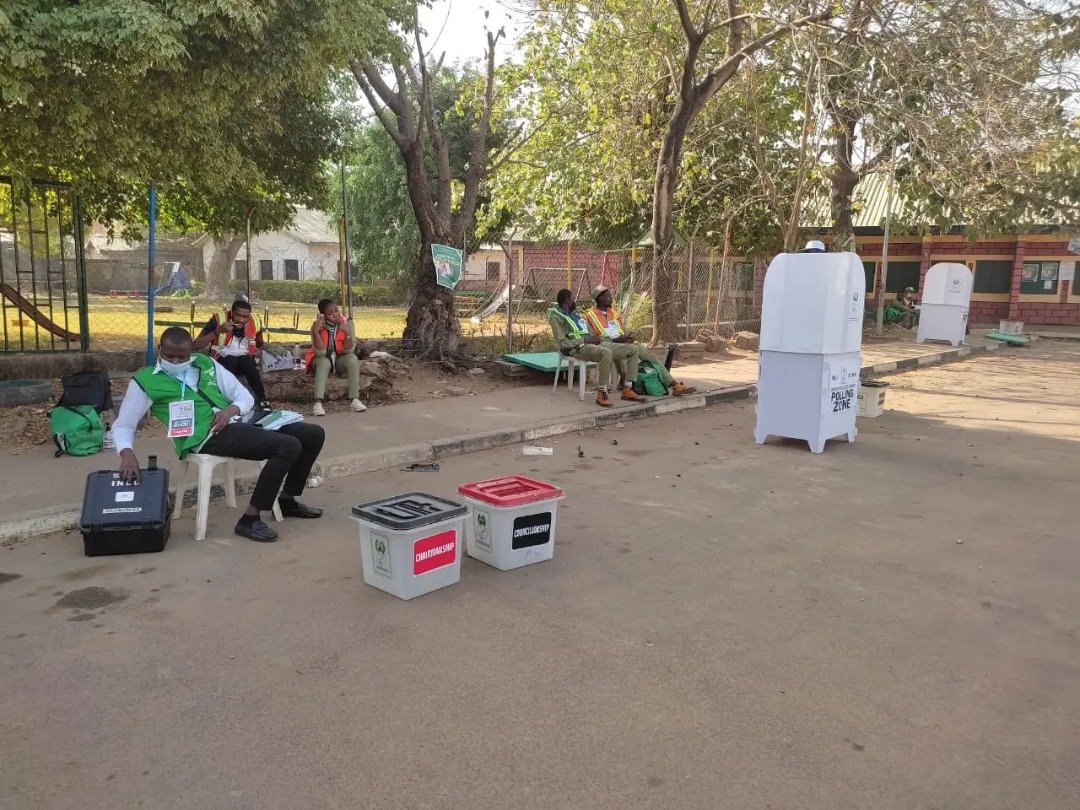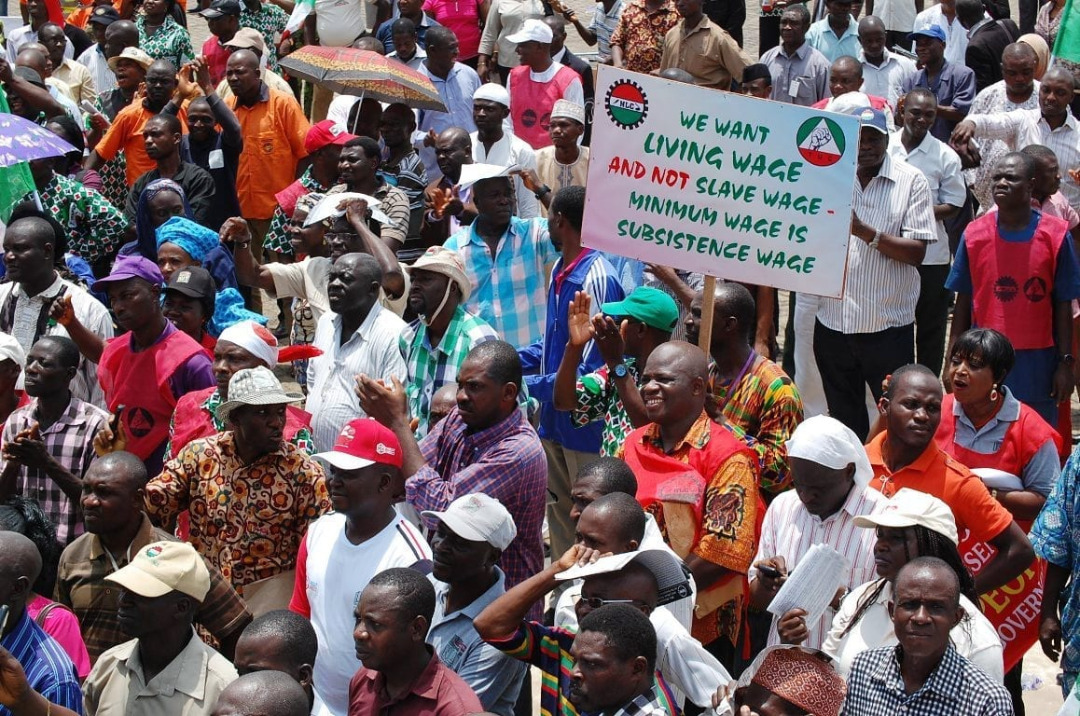As the count down towards the all-important 2023 general elections gets underway, the various off-cycle elections to be conducted by the Independent National Electoral Commission (INEC) constitute litmus tests of the Commission’s readiness. Nigerians who appear eager to use the general elections of next year to reset the country and give it a new lease are anxious about the readiness of the electoral umpire to deliver free, fair and credible elections. If the just concluded Federal Capital Territory Area Council elections are to be used as barometer for what is to come in 2023, there will surely be several sources of worries.
As attested to by several civic groups, which deployed election observers to keep an eye on the process, the abysmal performance of the Bimodal Voter Accreditation System (BIVAS) was a source of frustration and disenfranchisement of several eligible voters who attempted to exercise the democratic right of voting for a candidate of their choice. Frontline pro-democracy think-tanks, like the Resource Centre for Human Rights & Civic Education (CHRICED), the Centre for Democracy and Development (CDD), the Centre for Environmental Sustainability and Development Awareness (CESDA) and the Nigeria Civil Society Situation Room, have all given thumbs down to INEC over the below par functionality of the BIVAS. The flaks received by INEC from groups, which observed the FCT polls are informed by disappointing performance of the devices despite the Commission’s reassuring words in the build up to the elections.
CDD data for instance indicated that in terms of the number of minutes spent on accreditation for areas where the BVAS worked, voters spent an average of 8-10 minutes on the accreditation process. This according to the frontline democracy advocacy centre, amounts to around eight voters being accredited per hour. The group therefore stressed that the ensuring effectiveness and seamless operation of the BIVAS critical component for the smooth conduct of the polls. Given the damning verdict on the near failure of the deployed election technology, analysts who still believe INEC can make the necessary adjustments before the next set of off cycle elections in Osun and Ekiti, are urging the electoral umpire to get back to the drawing board and quickly fix the issues with BIVAS.
However, while the problems with election technology present a huge headache for both voters and the Election Management Body to grapple with, a number of other attitudinal issues could combine technological glitches to undermine robust participation in the 2023 general elections. One such anomalies, which reared its ugly head in the FCT Area Council poll is disturbing level of lack of participation by the vast majority of registered voters. For pro-democracy advocates who see election periods as exciting moments, which present the opportunity for voters to give their mandate to leaders who would govern them for the constitutionally allowed period, the level of voter apathy during the FCT polls, was a huge source of concern. Given the poor turnout in several areas during the elections, several analysts have called for urgent measures to get out the vote.
According to INEC, 14 political parties and 472 candidates participated in the Election. Each party competed for 62 councillorship and six chairmanship seats. The election was held in the 68 wards spread across Bwari, Abaji, Gwagwalada, Kuje, Kwali and Abuja Municipal Council (AMAC) area councils of the FCT. INEC had disclosed prior to the election that there were 1,373,492 registered voters expected to participate in the election in 2,229 polling units and that it had deployed 2,822 the biometric voters accreditation system (BVAS) and 12,000 adhoc staff for the exercise. Despite everything put in place by INEC to ensure voters are able to exercise their franchise, most parts of the FCT recorded low turnout of voters. The first signal that there would be very little energy in the elections came to the fore in the pre-election period, when INEC Chairman, Prof. Mahmood Yakubu, on February 3 announced that 593 of the polling units in the FCT had no registered voters. He also informed that 1,328 polling units in the territory had a maximum of 50 voters, while 546 others had more than 1,000 registered voters. The implication of this is that during the period of voter registration, there were several places, where eligible Nigerians did not turn up to get registered.
As predicted, the lack of interest by eligible voters played out on Election Day itself. The worrisome level of voter apathy during the FCT polls, was apparent in the number of voters who got accredited to cast their ballot. In the Abuja Municipal Area Council, which has over 600,000 thousand voters representing over 50 percent of the registered voters in the territory, only a small portion of registered voters turnout. For the Chairmanship election in AMAC for instance, only 32,419 voters were accredited. There was even the trending case of a polling station in Ubiaja Crescent in Garki with four polling units, where not even a single voter showed up to cast a ballot. The INEC officials ending up sitting idly for the whole of election day, only to record zero votes at the end at the close of what was supposed to be voting day.
Close watchers of the country’s electoral process have expressed apprehension about the effect of voter apathy, not just on the 2023 polls, but the entire democratic system. Concerns are mounting that if the trend of voter apathy is not urgently addressed, Nigeria’s democracy will further witness a decline, with a corresponding effect on the ability of the people to hold their leaders accountable using the electoral process. In addition, there are fears that the reluctance of voters to turnout during elections would accentuate the current waste of resources wherein INEC spends billions to procure and print election materials, only for voters not to use them. A number of civic groups have attempted a diagnosis of the problem in order to proffer sustainable solutions. In the reckoning of some analysts, the current crop of political elite are responsible for the waning interest of citizens in the electoral process. Those who hold this view canvass the position that because politicians have failed to deliver good governance and encourage citizen’s participation in the democratic process, the people have decided to stay away from the electoral process as a way of passing a vote of no confidence on the outcomes, which the democratic system has produced.
Another perspective is that the cumbersome nature of the voting process as well as unchecked actions of political actors to compromise the integrity of the electoral process, through vote buying have alienated voters. During the FCT polls observer reports pointed at blatant instances of vote buying across the electoral terrain. As one observer puts it: “If we look at the strategy the politicians are using to buy votes, it is apparent that they can never encourage the people to participate massively in the process. I can say it without equivocation that the political actors are happy with the situation of low voter turnout during elections because that allows them to easily manipulate the process. Look at the situation with vote buying for instance; if voters turn out en masse to cast their ballots, it will be difficult for the contestants to buy the votes of everyone. But if turnout is low is the case now, it is way easy for the politicians to buy the votes, and then pretend that the people voted for them.”
Consequently, as the country counts down to the 2023 general elections, a number of stakeholders are of the view that drastic measures have to be taken to encourage robust participation of a healthy number of registered voters in elections.
One suggestions is for an amendment in the legal framework to ensure that for elections results to be valid and winners returned, they must meet a specified threshold in terms of voter turnout. One group canvassing this position is the Resource Centre for Human Rights & Civic Education (CHRICED). In its reaction to the poor turnout recorded during the FCT polls, the group in a statement by its Executive Director, Comrade Dr. Ibrahim M. Zikirullahi said: “In the build up to the all-important 2023 elections, CHRICED calls for drastic measures to address the disturbing reality of voter apathy, which is almost becoming a permanent feature of Nigeria’s democracy. It could be useful to consider an amendment of the laws to ensure there is a specific threshold of voter turnout before the victory of a candidate can be legally valid.”
The frontline civic group stressed that Nigeria should consider putting in place a system where an election cannot return a candidate as validly elected, except there is a minimum turnout of at least 40 or 45 percent of the registered voters. The renowned civic group argued that with such a system, if the number of accredited voters do not meet the legal threshold, it should be deemed a vote of no confidence by majority of the voters, and such an election should not produce a winner. “Such drastic measures will force the politicians and the political parties to go the electorate and robustly canvass votes, unlike the current situation where the candidates and their parties merely budget to buy a few thousand votes as their path to winning a simple majority of votes.” In the end, only time will tell if electoral stakeholders in the country have the will to push through such proposal, especially as the Electoral Act amendment is currently in the limbo, with the President still withholding his assent, not minding that the clock is ticking towards the 2023 general elections.





















